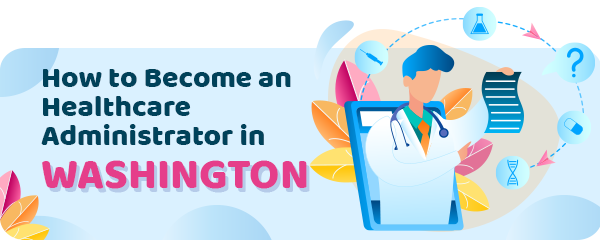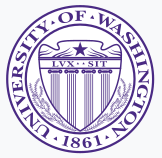The healthcare sector is rapidly expanding, creating a wealth of new career opportunities, particularly for those interested in behind-the-scenes roles.
One of the most rewarding career paths is in healthcare administration, which encompasses vital functions such as:
- Personnel Management – Overseeing staffing and managing human resources.
- Operational Efficiency – Streamlining processes to enhance workflow.
- Financial Oversight – Handling budgets and monitoring financial performance.
Healthcare administrators are crucial to the smooth operation of medical facilities, playing an integral role in the overall success of the healthcare system.
If you’re interested in a career in healthcare administration, there are numerous opportunities to explore this dynamic field.
Article Table of Contents
The Role of Healthcare Administrators in Washington
Healthcare administrators are fundamental to the effective operation of healthcare facilities.
Their role involves pinpointing inefficiencies and implementing strategies to improve overall performance.
Key responsibilities include:
- Optimizing Workflows – Enhancing processes to boost operational efficiency.
- Budget Management – Overseeing financial plans and managing expenditures.
- Accurate Record Keeping – Maintaining precise medical records.
- Staff Coordination – Organizing schedules and responsibilities for the team.
- Recruitment and Compensation – Managing hiring and salary decisions.
- Supporting Healthcare Teams – Providing crucial support to medical staff.
- Regulatory Compliance – Ensuring adherence to healthcare regulations and laws.
Traits of Effective Healthcare Administrators
Healthcare administrators with clinical backgrounds, such as those with nursing experience, often excel in administrative roles due to their practical knowledge and understanding of healthcare systems.
Successful healthcare administrators typically exhibit:
- Attention to Detail – Precision in managing various tasks.
- Multitasking Abilities – Efficiently balancing multiple responsibilities.
- Technical Proficiency – Expertise in healthcare technology and software.
- Leadership and Communication – Leading teams and conveying information.
- Problem-Solving Skills – Addressing challenges and making informed decisions.
For individuals from non-clinical backgrounds, a strong grasp of healthcare operations is essential for succeeding in this fast-paced field.
How to Become a Healthcare Administrator in Washington
Below you can see the steps to follow for a healthcare admin job.
Earn the Appropriate Degree
Start with a high school diploma or GED, then pursue a degree in healthcare administration or nursing.
Many begin with an Associate Degree in Nursing (ADN) and advance to a Bachelor of Science in Nursing (BSN), typically requiring 2 to 4 years.
Advance with a Master’s Degree
To further your career, consider obtaining a Master of Healthcare Administration (MHA), which generally takes 1 to 3 years.
Degrees in public health can also provide a solid foundation for leadership roles.
Obtain Professional Certifications
Earning certifications can enhance your credentials.
Nurses transferring into administrative roles might pursue certifications like:
- Nurse Executive Certification (NE-BC)
- Certified Nurse Manager and Leader (CNML)
Gain Practical Experience
After completing your education, it’s crucial to gain hands-on experience.
Roles such as team leader, supervisor, or nurse manager can help develop the necessary skills for a successful career in healthcare administration.
Healthcare Administration Programs in Washington
Now that you have all the info you need, let’s check out the programs available in Washington.
University of Washington 
The Master of Health Administration (MHA) program at the University of Washington lasts for 2 years.
This means students have to attend classes full-time.
The classes are held on the Seatle campus, from Monday through Wednesday.
However, you can study online too if you choose the hybrid Executive MHA program.
There are a few differences between the MHA and the Executive MHA program.
These are:
- Program format
- The kinds of students the programs are aimed at
- The MHA full-time is for those who already have some work experience
- Usually, 3 years of work experience is the minimum
- Those enrolling in the Executive MHA program usually have 10 years of experience
- There are 30 students in the MHA full-time cohort and just 10 in the Executive MHA cohort
- The program duration and credits to earn also differ:
- 76 credits over six quarters for the MHA full-time
- 69 credits over eight consecutive quarters for the Executive
- There is no internship for the Executive
The common aspects are:
- No GRE required
- Fixed curriculum and course sequencing.
- The programs end with a capstone project, regardless of internship requirements
The MHA program received accreditation from CAHME.
Make sure to enhance your classroom knowledge with a full-time summer internship at a healthcare agency in Seattle or nationwide, leveraging our extensive program connections.
You can benefit from numerous professional development opportunities, including mentorship, networking with healthcare executives, and launching your career with a solid start.
| School Name | Address |
|---|---|
| University of Washington | 3980 15th Ave NE, Fourth Floor Box 351621 Seattle, WA 98195 |
Salary Expectations for Healthcare Administrators in Washington
Wondering about the salary prospects for healthcare administrators in Washington?
On average, healthcare administrators in this region earn around $112,676 per year.
For a more detailed breakdown of salary variations by region, please see the table below:
Annual Salary Range:| Location | Avg. Annual Salary |
|---|---|
| Seattle | $115,289 |
| Renton | $115,185 |
| Issaquah | $114,976 |
| Preston | $114,766 |
| Lynnwood | $114,139 |
| Kingston | $113,930 |
| Duvall | $113,721 |
| Skykomish | $113,512 |
| Port Gamble | $113,408 |
| Everett | $113,303 |
Regional Salary in Washington
| Region | Employed | Avg. Annual Salary | Avg. Hourly Pay | Top 10% Annual Salary | Bottom 10% Annual Salary |
|---|---|---|---|---|---|
| Bellingham, WA | 150 | $143,100 | $68.8 | $221,880 | $83,310 |
| Bremerton-Silverdale, WA | 180 | $148,340 | $71.32 | $# | $71,700 |
| Kennewick-Richland, WA | 220 | $146,860 | $70.6 | $194,720 | $78,890 |
| Longview, WA | 90 | $145,370 | $69.89 | $# | $74,910 |
| Mount Vernon-Anacortes, WA | 90 | $144,720 | $69.58 | $207,160 | $79,290 |
| Olympia-Tumwater, WA | 350 | $147,310 | $70.82 | $203,270 | $92,820 |
| Seattle-Tacoma-Bellevue, WA | 4,600 | $157,780 | $75.86 | $225,610 | $96,870 |
| Spokane-Spokane Valley, WA | 680 | $140,080 | $67.35 | $197,900 | $74,540 |
| Walla Walla, WA | 80 | $135,360 | $65.08 | $178,860 | $88,340 |
| Wenatchee, WA | 110 | $130,280 | $62.63 | $183,440 | $76,540 |
| Yakima, WA | 160 | $142,100 | $68.32 | $228,360 | $81,390 |
* Employment conditions in your area may vary.
Frequently Asked Questions
What degree is best for a healthcare administrator in Washington to obtain?
Any degree is good to have in the healthcare administration department.
Those who want as many career options as possible, usually graduate with a master’s degree.
At what age can I become a healthcare administrator in Washington?
Individuals entering a career in healthcare administration are generally 21 or older.
The age at which you start in the field largely depends on when you decide to pursue the role and the necessary training.
This timeline can vary depending on factors like previous experience, educational background, and whether you choose an accelerated program or study part-time.
Which skills are needed by a healthcare administrator in Washington?
A healthcare administrator doesn’t only have the skills mentioned earlier, but also:
- Knowledge of healthcare laws and regulations
- Leadership skills
- Technological proficiency
- Problem-solving abilities
- Communication skills
- Adaptability
- Business expertise
Read the full guide: How to Become a Healthcare Administrator

